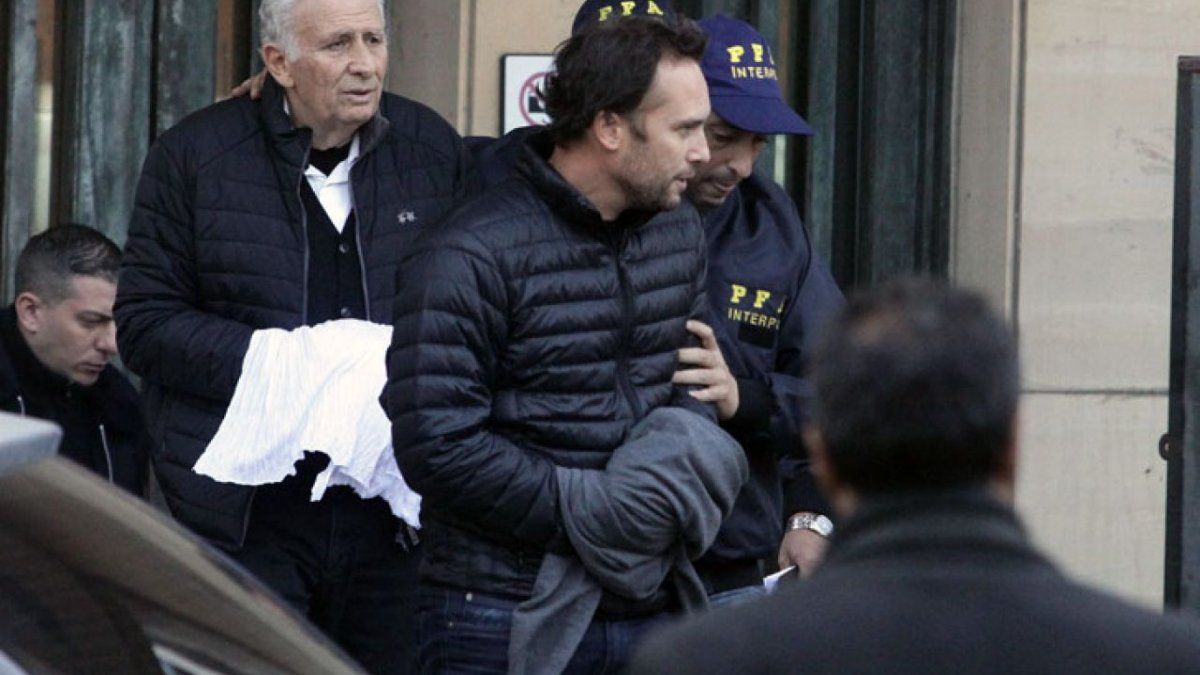The popular and media scandal of the fifa gatewhich involved powerful businessmen from recognized media, had an unexpected twist.
It is that recently, the New York Court annulled the sentences that were still in force for Hernán López and Hugo and Mariano Jinkis.
Both López (Fox Sports) and Hugo and Mariano Jinkis (Full Play), They received said benefit after the New York Court did not accept the jurisdiction of the Prosecutor’s Office over the accusations against those involved in the fraud, Infobae details in its report.
What was the judge’s argument?
As expanded in the investigation, the federal judge’s argument is that the wire fraud statute “is not applicable to foreign bribery schemes.” For this reason, the Judge Pamela Chen took this measure relying on rule 29, which had been used as an appeal by lawyers from both full play like Lopez.
“For the reasons set forth in the attached Memorandum and Order, the Court grants the defendants Full Play Group SA and Hernán López, the Motion of Acquittal”, specifies the writing revealed by Judge Pamela Chen.
In that order, phrases framed under “direct proof of knowledge” are shown, and fraudulent intent is almost never available. That would be a rare case in which it can be shown that a person wrote or declared that from a given moment he or she committed an act with fraudulent intent so direct proof is not required”.
FIFA PHOTO.jpg
Archive
On the other hand, the ruling notes that “the Government maintains that the defendants in this case, knowingly and intentionally involved in plans for soccer officials to breach their fiduciary obligations and duties to the FIFA and other specific soccer organizations through the distribution and payment (by defendants) and receipt (by soccer officials) of bribes”.
And he adds: “These and kickbacks involve the exchange of a thing or things of value for official action by an official, in other words, a quid pro quo (a Latin phrase meaning this for that or these for those). Bribery also includes the official’s acceptance, request, or agreement to accept a thing of value in exchange for an official action, regardless of whether the payer actually provides the thing of value, and regardless of whether the official actually performs the official action. or intends to do so.
What does the second element of electronic fraud say?
“The second element of electronic fraud – the resolution expands – is that the defendant devised or participated in the plan knowingly and with the specific intention of defrauding. As I said before, the terms knowingly and intentionally are distinct and essential elements under the law. ‘Intent to defraud’ means acting knowingly and with the specific intent to deceive, in order to deprive the football organization(s) of its right to the honest services of its officials, i.e. its right to the fidelity of the official , performance of their fiduciary duties to the organization, including the duty not to accept personal payments in exchange for official acts on behalf of the organization. The Government does not need to prove that the defendant intended to cause economic or pecuniary damage.. Whether a person acted knowingly, intentionally, and with intent to defraud is a matter of fact for you to determine, like any other question of fact. The question involves one’s state of mind”, they remark.
Likewise, the ruling clarifies the crime of “federal fraud” by maintaining that the statute, in title 18, United States Code, Section 1343, establishes that “who, having devised or attempted to devise any plan or artifice to defraud, or to obtain money or property through false or fraudulent pretenses, representations, or promises, transmits or causes to be transmitted by means of cable, radio communication or television in interstate or foreign commerce, any writing, signal, image, or sound for the purpose of executing such scheme or artifice shall be guilty of an offence. The term scheme or artifice to defraud includes a scheme or artifice to deprive another of the intangible right to honest services. Honest services fraud is limited to schemes involving bribery or kickbacks. These laws were passed by Congress to protect against the various fraudulent schemes that could be devised by individuals through the use of interstate cables.”
Finally, they state in the report that “andhe first element of electronic fraud -he insists on clarifying- is that the defendant knowingly devised or participated in a scheme or artifice to defraud FIFA, CONCACAF, CONMEBOL, or its constituent organizations, as specified in the applicable charge, of their inalienable right to honest services through false or fraudulent pretenses, representations, or promises. A scheme is any plan or course of action formed with the intention of achieving some purpose. Therefore, to convict each defendant of this offence, you must find that the defendant engaged in fraud to deprive the victimized soccer organization of honest services through bribery.”
Source: Ambito
I am Pierce Boyd, a driven and ambitious professional working in the news industry. I have been writing for 24 Hours Worlds for over five years, specializing in sports section coverage. During my tenure at the publication, I have built an impressive portfolio of articles that has earned me a reputation as an experienced journalist and content creator.




